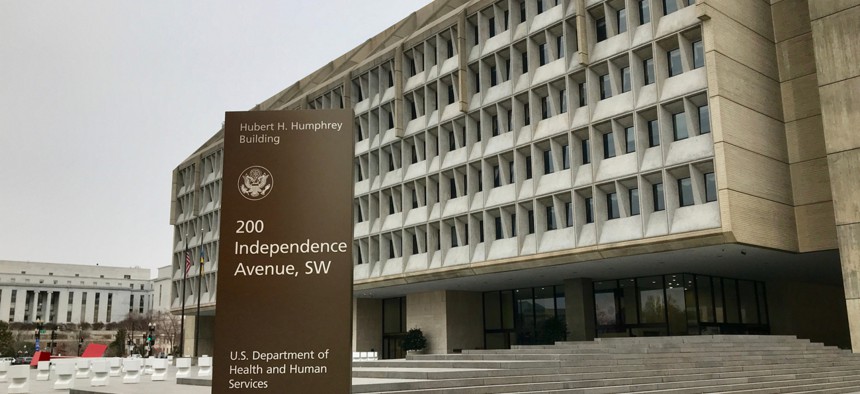
Jer123/Shutterstock.com
Arbitrator: HHS Violated Labor Laws Implementing Union Contract
In May, the Health and Human Services Department implemented a Federal Service Impasses Panel decision, despite the fact that it was legally required to first negotiate six union contract provisions with the National Treasury Employees Union.
An independent arbitrator ruled last month that the Health and Human Services Department engaged in “clear and patent” violations of federal labor law when it implemented a Federal Service Impasses Panel decision on part of its contract negotiations with the National Treasury Employees Union.
In April, the impasses panel, which resolves conflicts between unions and agencies that arise during contract negotiations, issued a largely pro-management decision on various provisions of a proposed collective bargaining agreement between HHS and NTEU. But the panel pointedly refused to weigh in on six articles of the new contract, and ordered the parties back to the negotiating table.
HHS officials moved quickly following the panel’s decision, formally implementing its provisions on May 3. NTEU then filed an internal grievance, arguing that it is illegal to implement a partial agreement unilaterally while parties continued to negotiate the six outstanding contract articles.
Among the changes made to implement the provisions were severe cuts to telework, annual leave and official time.
In a decision dated Dec. 12 but not delivered to the parties until this week, independent arbitrator Roger Kaplan mostly agreed with the union’s assertions that the decision to implement a partial contract violated both federal labor law and the previous union contract, which most recently was amended in 2014.
“The evidence made abundantly clear that at no time was there an ‘integrated and complete’ agreement,” Kaplan wrote. “An ‘integrated and complete’ agreement is one that contains the language of all the articles that were not in dispute, all the articles that were negotiated and agreed upon by the parties, the provisions ordered by FSIP and agreed upon language for the articles that the parties had yet to be agreed upon. Indeed, the record showed that, even at the time of the [arbitration] hearing, some articles were still in negotiation.”
By implementing the impasse panel’s decision before coming to agreement with NTEU about the remaining six articles, HHS effectively “repudiated” the existing collective bargaining agreement, contrary to law.
“I find that the agency’s implementation of and acting on the language of the FSIP decision and order before a complete successor agreement was in place constituted a violation of [the law governing federal labor relations] because by applying terms that were not yet part of the CBA, the agency ‘interfered with, restrained, or coerced’ employees in the exercise [of their collective bargaining rights].”
The ruling marks the second instance in which an arbitrator concluded that HHS broke the law in its negotiations with NTEU. In October, an arbitrator substantiated claims that the department engaged in bad faith bargaining by performing “surface level bargaining” in an effort to rush negotiations to the impasses panel.
According to the decision, HHS and NTEU have 90 days to negotiate “make-whole relief” to make up for the harm caused to HHS employees due to the premature partial contract implementation. In a statement, NTEU National President lauded the ruling.
“NTEU has said all along that agency management cannot force employees to work under a one-sided, partial edict that takes away important rights and benefits,” he said. “It has been a long, slow process but we intend to hold HHS accountable for their bad faith bargaining, illegal short cuts and overall disrespect for the collective bargaining process.”







